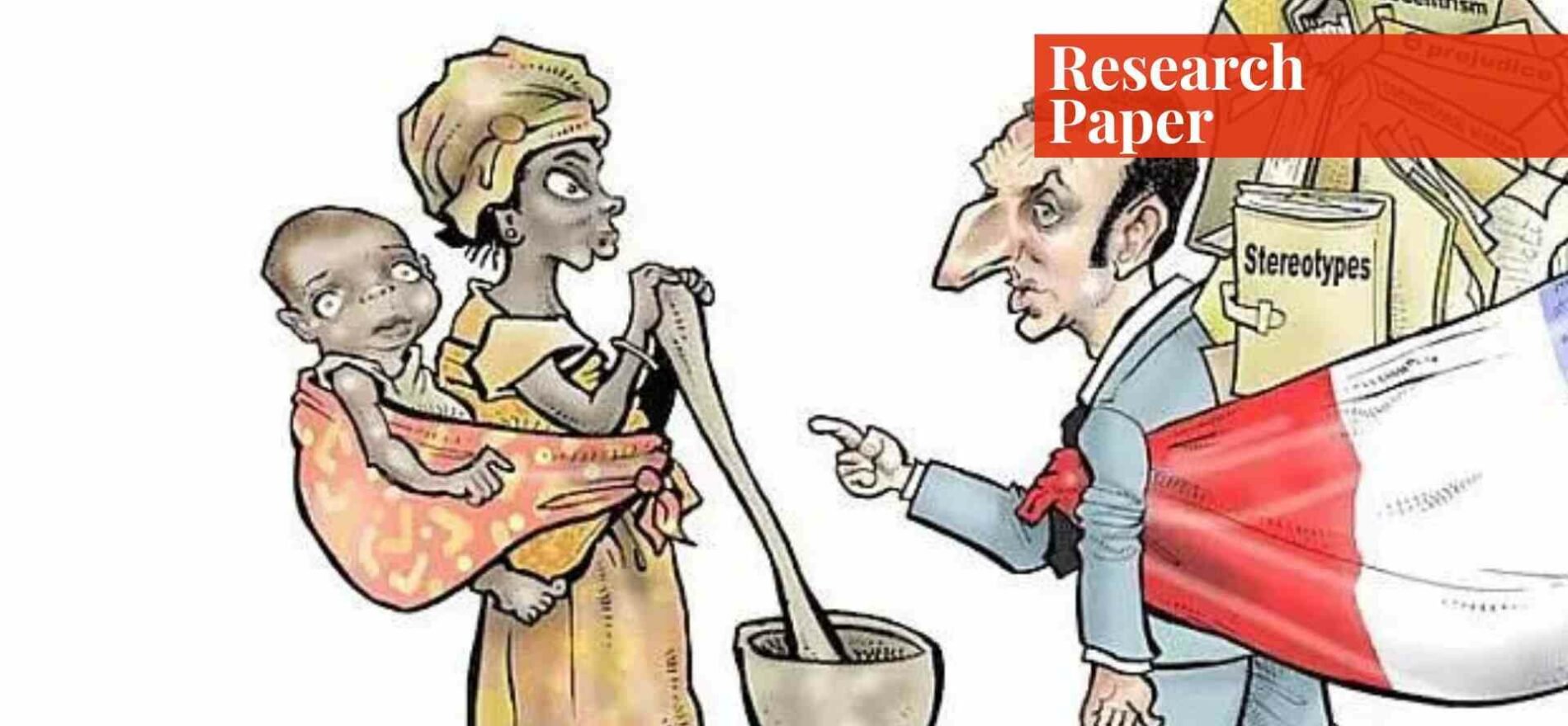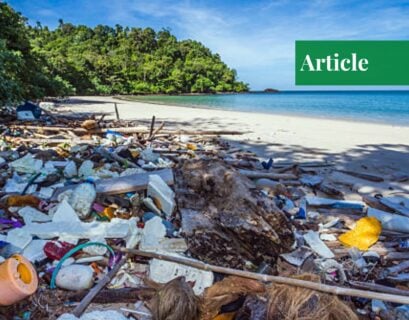Ms Tahoora Kamran holds a bachelor’s degree in Social Development and Policy from Habib University and a master’s degree in International Public Policy from Queen Mary University of London.
Introduction
In following world affairs, colonialism remains a relevant factor that helps in “understanding the problems and dangers of the world we live in now” (Tharoor, 2002: 1). As Tharoor mentions, “colonialism from the imperialists’ point of view, was about doing well rather than doing good” which, in the world of today, “left many people worse off than before” (Tharoor, 2002: 4).
Viewing the world through the “analytic lens of imperial legacies” (Halperin and Palan, 2015: 3) will showcase how “legacies are elements of the present” that shape contemporary international public policy. To demonstrate the legacies of colonialism in the contemporary international policy landscape, this paper will first examine the case of former French African countries where colonialism “is an enduring stain in the continent’s history and economic oppression continues to exist” (Mentan, 2018: 193).
It will also uncover how the Belgian classification of Hutus and Tutsis in Rwanda still exists today, and how this division has led to conflict and underdevelopment in Rwanda. Lastly, I will argue that neo-colonial governance runs through the IMF and World Bank, where these institutions “represent continuity between the present and the recent past” (Halperin and Palan, 2015: 7).
French Colonial Pact
The CFA franc, “a colonial-era currency”, is “still used in several former French colonies in Africa”. This can be viewed as an existing “relic of French colonialism” whereby economic growth is limited due to “the economic and financial domination” France has over 14 African countries (Konkobo, 2017). Such a structure can be linked to the dependency theory, which argues that “colonialism created fundamental and interrelated structural distortions in the economies of the Third World countries and that these were continuing to thwart development” (Halperin and Palan, 2015: 4).
In 2014, 14 African countries: Benin, Burkina Faso, Guinea-Bissau, Ivory Coast, Mali, Niger, Senegal, Togo, Cameroon, Central African Republic, Chad, Congo-Brazzaville, Equatorial Guinea and Gabon, 12 of which are former French colonies, were “obliged by France through a colonial pact, to put 85% of their foreign reserves into France’s central bank under French minister of finance control” (Mentan, 2018: 195). Thus, as a result of this “practice”, France “thrives” and “extracts approximately 500 billion US dollars from African countries each year” into its treasury (Mentan, 2018: 194).
This colonial pact, which is still in force since the 1950s, according to Italian deputy prime minister, Luigi Di Maio, “prevents” the economic development of these African countries. According to Mentan (2018), despite “two main African banks having African names, they have no monetary policies of their own”; and these African countries can “access” only “15% of the money in any given year”. If ever, there is a “need” for more, these former colonies are expected to “borrow the extra money from their own 65% from the French treasury at commercial rates”.
Due to the use of the CFA franc and this colonial pact, the anti-CFA movement argues that economic development and growth will be inhibited, as “in exchange for the guarantees provided by the French treasury, African countries channel more money to France than they receive in aid” (Konkobo, 2017). This object of French influence on these countries “strips their authority over their own natural reserves” and “exacerbates debt” (Mentan, 2018: 194).
To provide a contrast, nations such as Morocco, Tunisia, and Algeria, that “withdrew from the franc zone and mint their own currency” after independence are “stronger economically than any user of the CFA franc” (Sylla, 2017). Thus, as shown through this example, there is an evident connection between France’s neocolonial rule and contemporary international public policy.
Postcolonial Rwanda
The Belgian classification of Tutsis and Hutus is another example of an enduring colonial legacy. In the case of Rwanda, the categorisation of Tutsis and Hutus, formed by Belgian rule “continues to haunt the region of the African Great Lakes” (Tharoor, 2002: 2). The “untidy departure” of this colonial power resulted in “residual problems” that “had not existed previously” (Tharoor, 2002: 1-2).
Before Belgian rule, the Tutsis and the Hutus were not attributed with a “racial distinction” (Marchak, 2003: 200); a tool that the colonial powers used to advance their power and agendas. Belgian colonial policies “exacerbated differences” by separating the Tutsis and the Hutus through identity cards “specifying” their “identity” (Marchak, 2003: 205), which caused the “self-awareness of these two groups as distinct peoples” (Tharoor, 2002: 2).
Such a classification was “accompanied by an unequal distribution of resources of the state within colonial society” whereby Belgian colonialists “preferred (and promoted) the Tutsis, leading to Hutu rejection of them as alien interlopers favoured by foreigners” (Tharoor, 2002: 2-3). Since the Tutsis were individuals who “tended livestock” while the Hutus were people “who farmed crops”, the Tutsis were viewed to be the “local elite” and “had been the ruling monarchy for quite some time” which Belgian rule “supported” (Beauchamp, 2014).
This favouring of the Tutsis by Belgian rule was made evident to the Hutus when Belgian rulers required “that all local chiefs be Tutsis” which turned “the Tutsis into symbols of colonial rule for the Hutu majority” (Beauchamp, 2014). With the “inter-ethnic rivalries” stimulated, Belgian rulers aimed to achieve “political control as well as [prevent] the development of solidarity between the two ethnic groups which inevitably would have been directed against the colonial regime” (Chossudovsky, 1996: 938).
Due to the “colonial administrative habit of divide and conquer” (Tharoor, 2002: 2) the distinctions created by Belgian rule “bred violence” (Beauchamp, 2014), as was evident in the 1994 genocide in Rwanda, where “an estimated 800,000 Rwandans were killed in the space of 100 days”; most of whom were Tutsis – “and most of those who perpetrated the violence were Hutus” (BBC, 2011).
The Belgian policy of identity cards, in the time of the genocide, made the conflict worse, as “militias set up roadblocks where Tutsis were slaughtered” (BBC, 2019) because they could identify them. A study that explored the economic consequences of the genocide indicated that “the Rwandan genocide led to an immediate drop in GDP by 58%”, and although Rwanda is experiencing economic growth today, “it took around 17 years until its GDP was equal to its counterfactual GDP, which it would have experienced in the absence of the genocide” (Hodler, 2018: 3).
Poverty is also an ongoing problem in Rwanda, with “39 percent of the population lives below the poverty line and 16 percent lives in extreme poverty” (Nzohabonimana, 2019). The distinction created by Belgian rule, in Rwanda today, is significantly “telling” (Mehu, 2018: 64) as Paul Kagame, the president of Rwanda, a Tutsi, and The Rwandan Patriotic Front (RPF), formed by Tutsi refugees (BBC, 2011) are “in power” and “there are little to no ethnic Hutu representatives within the government” (Mehu, 2018: 64).
The condition of Rwanda, at the time of the genocide, generated a UN peacekeeping operation, which “suffered from having a very narrow mandate” that “tasked” soldiers with “monitoring, assisting, and investigating crimes and violence” (Lakin, 2019). Kofi Annan, who at the time of the Rwandan genocide, was the head of peacekeeping operations, rejected UNAMIR’s (United Nations Assistance Mission for Rwanda) force commander Roméo Dallaire’s authorization request to “raid the arm caches” even though Annan was aware of the “potential violence in Rwanda” (Dayal, 2018).
The genocide, considered to be the “greatest failure” of the UN, became a “turning point” for the organization (Oakford, 2014), as today, the Security Council has authorized “all complex peace operations to use force”; a course of action that was missing during the genocide as “UNAMIR was not authorized to use force” (Dayal, 2018).
With this example, it is revealed that the conflict between the Hutus and the Tutsis, which is considered to be “largely the product of the colonial system” (Chossudovsky, 1996: 938), generated UN peacekeeping, and later, led to reforms. Thus, due to the consequences of the Belgian classification, there is an apparent link between contemporary international public policy and colonialism.
Neocolonialism
Neo-colonialism is defined as “a class name for all policies, infrastructures and agents actively contributing to society, which indirectly serve to grant continuity to the practices known to the colonial era” (Mentan, 2018: 280). This notion will provide an understanding of how international financial institutions such as the IMF and the World Bank function through this “indirect [form] of control” (Halperin, Palan, 2015: 6).
Contrary to the preconceived perceptions of these institutions as “part of an essentially new global order” (Halperin and Palan, 2015: 6), these agencies are part of a “neo-colonialist trap” (Mentan, 2018: 241). As Halperin and Palan (2015) argue, any help, whether in the form of a loan or economic aid from the IMF and the World Bank is “conditional” on the nations receiving this help to “taking steps favourable to the financial cartels represented by these institutions”.
These agencies, being heavily backed up by US capital, coerce borrowers to certain requirements, such as; “supplying information about their economies, submitting their policies and plans to review by the World Bank and accepting agency supervision of their use of loans” (Mentan, 2018: 241). The imperial powers, with their influence and control in these institutions, grant loans paired with a “high interest rate” that limit the growth of Third World nations (Mentan, 2018: 250).
The unequal nature of the IMF and the World Bank makes these agencies “authoritative international structures” that encompass “mechanisms” in favour of “great power interests” (Zurn, 2018: 140). Such a power imbalance, thus, leads to hierarchy; and this “institutionalised inequality” is a recognised critique of the IMF and the World Bank (Zurn, 2018: 141).
Conclusion
It can be concluded, with the support of the cases mentioned in this paper—the French colonial pact; Belgian rule in Rwanda; and neocolonial governance through the IMF and the World Bank—that the legacies of colonialism substantially shape contemporary international public policy as traces of colonialism still exist in former colonies in areas of governance and economy.
References
- BBC News, (2019) Rwanda genocide: 100 days of slaughter. Available at: https://www.bbc.co.uk/news/world-africa-26875506
- BBC News, (2011) Rwanda: How the genocide happened. https://www.bbc.co.uk/news/world-africa-13431486
- Beauchamp, Z. (2014) Rwanda’s genocide — what happened, why it happened, and how it still matters. https://www.vox.com/2014/4/10/5590646/rwandan-genocide-anniversary
- Chossudovsky, M. (1996) ‘Economic Genocide in Rwanda’, Economic and Political Weekly, 31(15): 938-941.
- Dayal, A. (2018) Beyond ‘Do something’: revisiting the international community’s role in the Rwandan genocide. https://warontherocks.com/2018/10/beyond-do-something-revisiting-the-international-communitys-role-in-the-rwandan-genocide/
- Halperin, S. and Palan, R. (2015) ‘Introduction’, in Halperin and Palan (eds.) Legacies of Empire: Imperial Roots of the Contemporary Global Order. Cambridge: Cambridge University Press, 1-24.
- Hodler, R. (2018) ‘The Economic Effects of Genocide: Evidence from Rwanda’ Journal of African Economies, 28(1): 1–17.
- Hudson, M. and Faulkner, B. (2019) The IMF and World Bank: Partners in Backwardness. Available at: https://www.counterpunch.org/2019/07/05/the-imf-and-world-bank-partners-in-backwardness/
- Konkobo, L. (2017) African protests over the CFA ‘colonial currency’. https://www.bbc.co.uk/news/world-africa-41094094
- Lakin, S. (2019) 3 lessons from Rwanda, 25 years after the world failed to stop a genocide. https://www.businessinsider.com/lessons-rwanda-25-years-after-world-failed-to-stop-genocide-2019-9?r=US&IR=T
- Marchak, P. (2003) ‘Burundi and Rwanda, 1972–95’ in Patricia Marchak (ed) Reigns of Terror. McGill; Queen’s University Press, 199-211.
- Mehu, M. (2018) A Colony’s State of Sovereignty: Decolonization Has Yet to Take Place In Rwanda. Master’s thesis. The City University of New York. https://academicworks.cuny.edu/cgi/viewcontent.cgi?article=3522&context=gc_etds
- Mentan, T. (2018) ‘Africa between Independence and Neocolonial Age of Empire’ in Tatah Mentan (ed) Africa in the Colonial Ages of Empire. Langaa RPCIG, 231-290.
- Mentan, T. (2018) ‘Africa: Legacies of Old Colonial Age of Empire’ in Tatah Mentan (ed) Africa in the Colonial Ages of Empire. Langaa RPCIG, 177-228.
- Nzohabonimana, D. (2019) What makes Rwanda one of Africa’s fastest growing economies? https://www.trtworld.com/magazine/what-makes-rwanda-one-of-africa-s-fastest-growing-economies-23410
- Oakford, S. (2014) Peacekeeping 20 Years after Rwanda. http://www.ipsnews.net/2014/01/peacekeeping-20-years-rwanda/
- Sylla, N. (2017) The CFA Franc: French Monetary Imperialism in Africa. https://blogs.lse.ac.uk/africaatlse/2017/07/12/the-cfa-franc-french-monetary-imperialism-in-africa/
- Tharoor, S. (2002) ‘The Messy Afterlife of Colonialism’, Global Governance, 8 (1): 1-5.
- Zurn, M. (2018) ‘Contested Global Governance’, Global Policy, 9 (1): 138-145
If you want to submit your articles, research papers, and book reviews, please check the Submissions page.The views and opinions expressed in this article/paper are the author’s own and do not necessarily reflect the editorial position of Paradigm Shift.


















